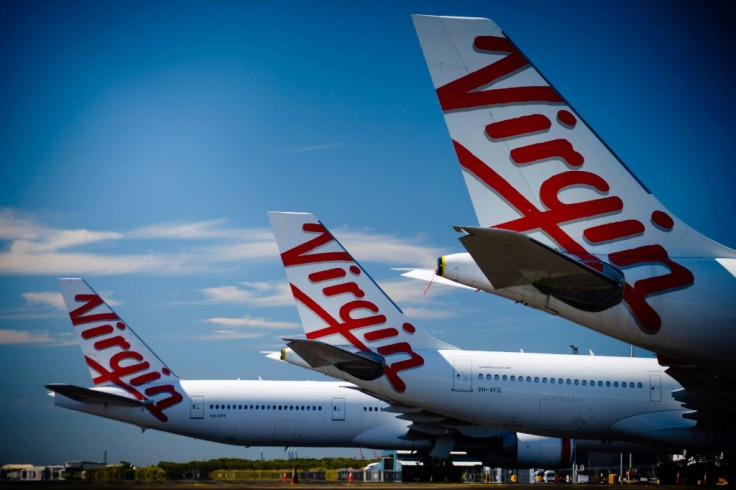Virgin Australia To Be Taken Over By US Private Equity Firm Bain Capital

KEY POINTS
- Cyrus Capital Partners withdrew from consideration, citing a lack of engagement from Deloitte
- Virgin Australia owes about $4.82 billion to creditors
- Virgin Australia’s existing stockholders will likely get nothing from the administration process.
Struggling Virgin Australia airlines will be sold off to U.S. private equity firm Bain Capital.
Bain entered into an agreement with Virgin Australia’s administrator Deloitte to recapitalize and purchase Australia's second-biggest airline for an undisclosed sum. Bain was chosen in favor of a rival bid from Cyrus Capital Partners, another U.S.-based private equity group. Cyrus withdrew from consideration on Friday, citing a lack of engagement from Deloitte.
“Our investment and plan for the airline will support and celebrate Virgin Australia’s unique culture and protect as many jobs as possible for the short and medium term in a way that will make significant jobs growth possible,” said Mike Murphy, managing director at Bain Australia.
Bain will use private equity as well as its distressed and special situation funds to pay for the deal. Deloitte said Bain will provide a "significant" injection of capital into the airline.
Virgin Australia had entered into voluntary administration in late April after the covid-19 pandemic grounded its fleet. It owes about $4.82 billion to creditors. At that time the Australian government refused to provide a bailout.
Deloitte said however that it could not yet determine how much the airline’s creditors will be paid, and warned that shareholders will not receive any return. This means that Virgin Australia’s existing stockholders, including Singapore Airlines, Etihad Airways, HNA, China’s Nanshan group and Richard Branson’s Virgin Group, will likely get nothing from the administration process.
Virgin Australia’s contracts with suppliers and aircraft lessors have to be renegotiated before the return to creditors can be determined.
Creditors will vote on Bain’s recapitalization plan by the end of August.
Murphy of Bain said the firm plans to upgrade Virgin Australia 's regional services and guarantee the airline offers value to both leisure customers and business travelers.
The new Virgin Australia is expected to restart operations in September.
Bain will reportedly retain Virgin Australia's current management team, including Chief Executive Paul Scurrah.
“This is a great day for Virgin Australia and a huge milestone as we move forward with Bain Capital,” said Scurrah. “It was always the goal to bring our airline out of administration as quickly as possible in a stronger financial position and this… brings us a step closer to that. Bain’s investment will cement our future as a major Australian carrier, secure thousands of direct and indirect jobs, and ensure we can continue to bring competition to millions of customers for many years to come.”
Barnaby Lyons, head of Bain Capital’s Distressed and Special Situations business in Asia-Pacific said Scurrah and his team “have done a great job navigating through a difficult situation. We are backing their plan and will invest to make it even better.”
But under Bain’s control the airline will be a smaller operation. Of Virgin Australia’s 9,000 employees, Bain plans to keep 5,000 to 6,000 workers. In addition, Bain will cut Virgin Australia’s fleet in half from 132 aircraft to between 60 and 70.
“The fleet will be focused on 737s – the narrow-bodies – and obviously in the near term the domestic routes,” Murphy said.
Murphy also told the Australian Financial Review the airline could break even by February 2021.
Will Horton wrote in Forbes that the challenge for Virgin Australia is “not to simply rewind to a bygone decade. Instead it needs to scale down while retaining viable markets and passenger segments gained over the years.”
Angus Hewitt, an analyst at Morningstar, noted that despite its troubles, Virgin Australia has an attractive domestic business.
“The [Australian] domestic market is certainly profitable in normal circumstances. This is reflected in margins,” Hewitt said.
However, trade unions and analysts warned that Virgin Australia faces significant challenges ahead, with respect to growth in a covid-19 world and in competing with Australia’s top carrier, Qantas.
© Copyright IBTimes 2025. All rights reserved.



















